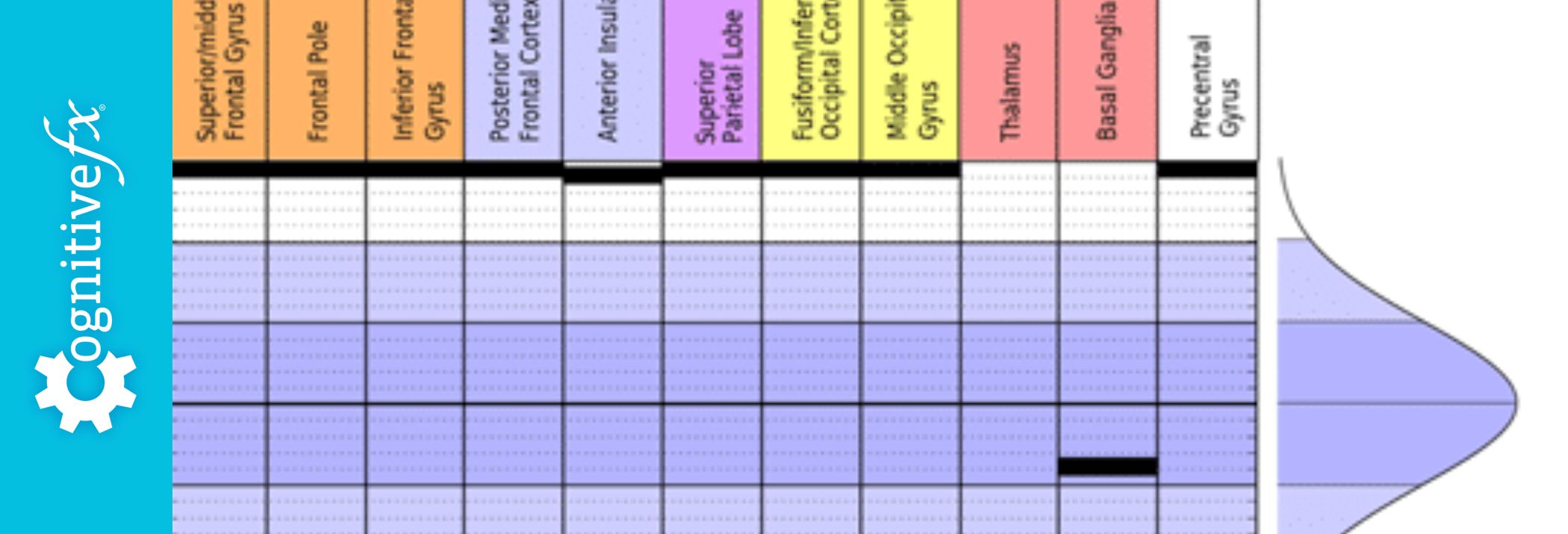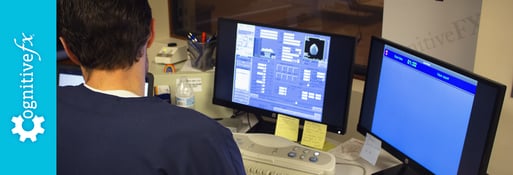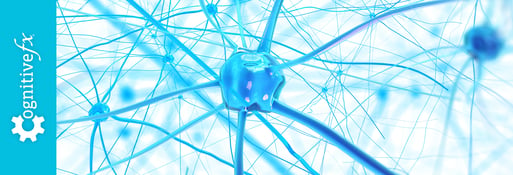fMRI (functional Magnetic Resonance Imaging) is often a more sensitive method for detecting brain injury such as concussion than a standard MRI (Magnetic Resonance Imaging) brain scan. fNCI (functional NeuroCognitive Imaging) which is an advanced form of fMRI is particularly effective when detecting and understanding brain injury. This may be especially important for certain classes of patients—such as those with mild traumatic brain injury (mTBI)—who display clear symptoms of a concussion with cognitive and neurological impairment but show no obvious brain tissue damage on standard MRI scans.
For patients who have suffered some form of brain trauma, and are still suffering from the symptoms of a concussion, fNCI is a wonderful diagnostic option. After a patient has received an fNCI scan, they will receive a report that compares their neurological loads to that of the normal population. This report allows Cognitive FX to tailor our treatment to target the most damaged portion of the brain.
fNCI & fMRI Applications for Concussion Recovery
On his first fNCI, the patient's activations were highly variable, evidencing both hyper- and hypo-activation across all tests. However, after one week of EPIC Treatment, the patient's post fNCI clearly showed normalization of activations across all brain regions. These results correlated with the patient's report of vast improvement in all areas of functioning, including headaches, cognition, sleep and emotional control.
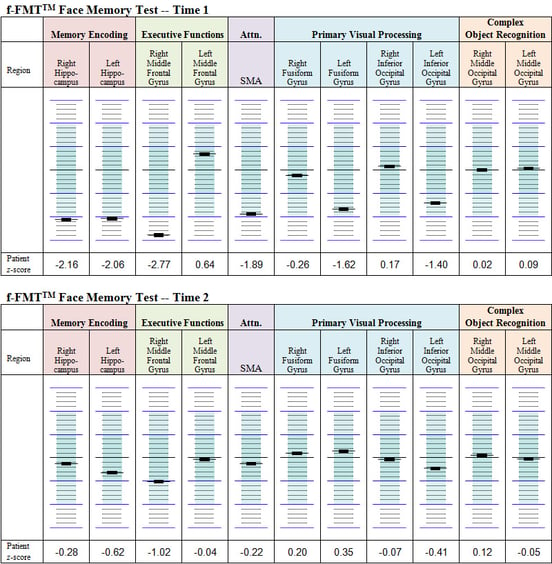
Additionally, patient's axial fNCI slices on pre-scan also evidence increase activations across brain regions on a task that was significantly hypo-activated. However on post scan, after EPIC Treatment, patient's activations vastly improved, also correlating with reports of increased energy levels and decreased concussion symptoms.
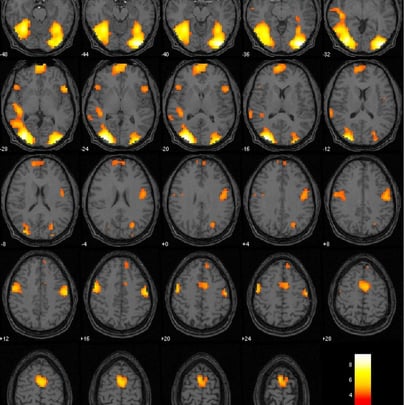 |
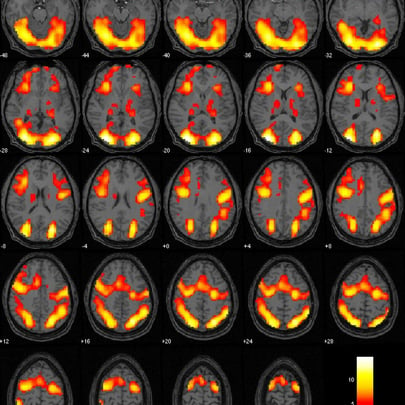 |
|
fNCI of brain before Cogntive FX EPIC Treatment
|
fNCI of brain after Cognitive FX EPIC Treatment
|

